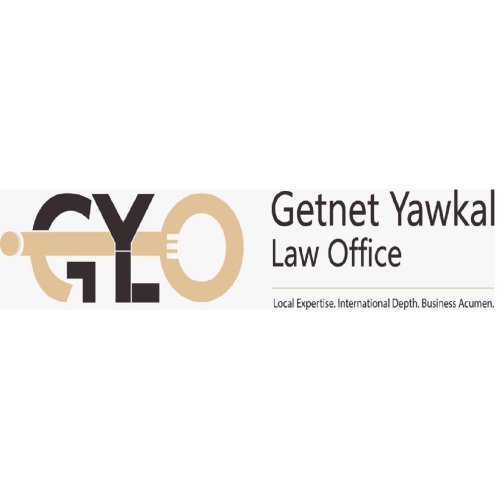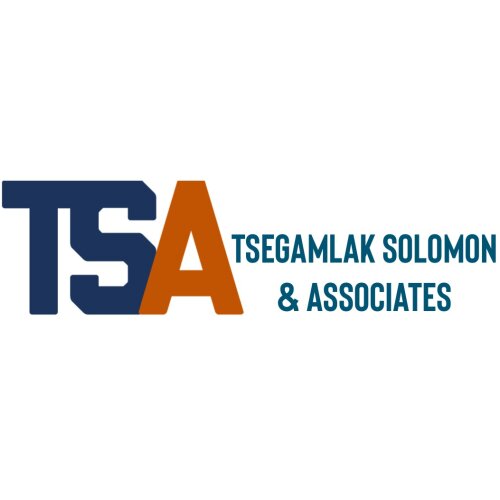Best Structured Finance Lawyers in Addis Ababa
Share your needs with us, get contacted by law firms.
Free. Takes 2 min.
List of the best lawyers in Addis Ababa, Ethiopia
About Structured Finance Law in Addis Ababa, Ethiopia
Structured finance refers to complex financial instruments and arrangements that are used to manage risk and create tailored funding solutions, often involving the pooling of financial assets and the issuance of securities backed by those assets. In Addis Ababa, Ethiopia, structured finance is gaining relevance as the financial market matures and businesses seek innovative ways to raise capital. Common forms of structured finance include securitizations, syndicated loans, asset-backed securities, and project finance arrangements. These structures are essential for large infrastructure projects, corporate expansion, and the development of new industries across Ethiopia.
Why You May Need a Lawyer
Structured finance transactions are inherently complex and require careful planning, negotiation, and compliance with local and international regulations. You may need a lawyer in Addis Ababa for structured finance if:
- You are a corporate entity seeking to raise capital through asset securitization or other structured transactions.
- You are involved in large infrastructure or real estate projects requiring syndicated loans or project finance schemes.
- You need to navigate regulatory requirements put in place by Ethiopian financial authorities.
- You are a foreign investor looking to structure cross-border deals in compliance with both Ethiopian and international law.
- You are a financial institution seeking advice on the latest legal developments in structured finance products.
- You require assistance drafting or reviewing complex financing agreements and security documents.
- You face disputes related to structured finance transactions and need representation or mediation.
Local Laws Overview
Structured finance in Addis Ababa is principally governed by the national laws that regulate the banking and finance sector, as well as broader corporate and contract laws. Key regulations and considerations include:
- National Bank of Ethiopia (NBE) Directives - The NBE regulates financial institutions, sets capital adequacy requirements, and oversees securitizations and syndicated lending.
- Commercial Code of Ethiopia - This code stipulates the formation, management, and operation of companies and partnerships involved in structured finance.
- Investment Proclamations - Foreign investment in structured finance must comply with investment proclamations regarding ownership, repatriation of profits, and sectoral restrictions.
- Security Rights in Movable Property Proclamation - This law governs the creation and perfection of security interests in movable assets, crucial for asset-backed transactions.
- Banking Proclamations - Banks and microfinance institutions must operate within the licensing and lending limits set by the NBE.
- Tax Laws - Structured finance arrangements may have significant tax implications, including withholding tax, VAT, and stamp duties, all governed by the Ethiopian Revenue and Customs Authority.
Given Ethiopia's evolving legal environment, it is important for parties engaged in structured finance to seek specialized legal advice to ensure compliance and structure their transactions effectively.
Frequently Asked Questions
What is structured finance and how is it different from traditional financing?
Structured finance involves using complex financial instruments to pool risks and resources, often with asset backing, unlike traditional loans or credit facilities. It is commonly used for large or unique financing needs.
Is structured finance permitted under Ethiopian law?
Yes, structured finance is permitted, but it must comply with regulations set by the National Bank of Ethiopia and relevant commercial and banking laws.
What types of assets can be securitized in Ethiopia?
Movable and immovable assets such as receivables, mortgages, and infrastructure projects may be securitized, subject to regulatory approval and proper registration.
Can foreign investors participate in structured finance deals in Addis Ababa?
Foreign investors can participate, but they must adhere to the Investment Proclamation and any sectoral restrictions. Regulatory approvals may be required.
How are disputes in structured finance transactions typically resolved?
Disputes are usually resolved through negotiation, mediation, or litigation in Ethiopian courts. Arbitration is also a common alternative if the contract provides for it.
What role does due diligence play in structured finance deals?
Due diligence is critical for assessing asset quality, identifying legal risks, and ensuring compliance with laws and regulations. Legal advisors are essential in this process.
Are there any restrictions on cross-border structured finance transactions?
Yes, cross-border transactions are subject to foreign exchange controls, investment regulations, and approval from the National Bank of Ethiopia.
What are common legal risks in structured finance transactions in Ethiopia?
Key legal risks include regulatory non-compliance, unenforceability of security interests, and changes in tax or financial regulations.
What documents are required for a typical structured finance transaction?
Common documents include offering memoranda, loan or securitization agreements, security agreements, trustee or agency agreements, and opinions from legal counsel.
How can I verify if a structured finance product or provider is legitimate?
You should ensure the provider is licensed by the National Bank of Ethiopia and request legal documentation showing compliance with all regulatory requirements.
Additional Resources
If you are exploring structured finance in Addis Ababa, the following organizations and resources can be highly beneficial:
- National Bank of Ethiopia (NBE) - Regulatory body for banking and finance
- Ethiopian Investment Commission - Information on foreign and local investment laws
- Ministry of Finance - Updates on tax laws and government financial regulations
- Ethiopian Bar Association - Directory of qualified legal professionals
- Commercial Banks and Financial Institutions - Guidance on available structured finance products
Next Steps
If you are considering engaging in a structured finance transaction or require legal guidance regarding financial products in Addis Ababa, Ethiopia, here are recommended steps:
- Identify and clearly define the nature of your intended transaction or need.
- Gather all relevant documents, including business plans, asset lists, and existing contracts.
- Consult with a qualified lawyer specializing in financial and corporate law in Ethiopia.
- Confirm that your transaction complies with all relevant laws and obtain any necessary regulatory approvals from the National Bank of Ethiopia or other authorities.
- Carefully review and negotiate all legal documentation before signing any agreements.
- Seek ongoing legal and financial advice to manage risks and remain compliant as laws and regulations evolve in Ethiopia.
Professional legal consultation is essential to protect your interests in structured finance arrangements. Do not hesitate to reach out to a local attorney or financial advisor for personalized assistance.
Lawzana helps you find the best lawyers and law firms in Addis Ababa through a curated and pre-screened list of qualified legal professionals. Our platform offers rankings and detailed profiles of attorneys and law firms, allowing you to compare based on practice areas, including Structured Finance, experience, and client feedback.
Each profile includes a description of the firm's areas of practice, client reviews, team members and partners, year of establishment, spoken languages, office locations, contact information, social media presence, and any published articles or resources. Most firms on our platform speak English and are experienced in both local and international legal matters.
Get a quote from top-rated law firms in Addis Ababa, Ethiopia — quickly, securely, and without unnecessary hassle.
Disclaimer:
The information provided on this page is for general informational purposes only and does not constitute legal advice. While we strive to ensure the accuracy and relevance of the content, legal information may change over time, and interpretations of the law can vary. You should always consult with a qualified legal professional for advice specific to your situation.
We disclaim all liability for actions taken or not taken based on the content of this page. If you believe any information is incorrect or outdated, please contact us, and we will review and update it where appropriate.

















